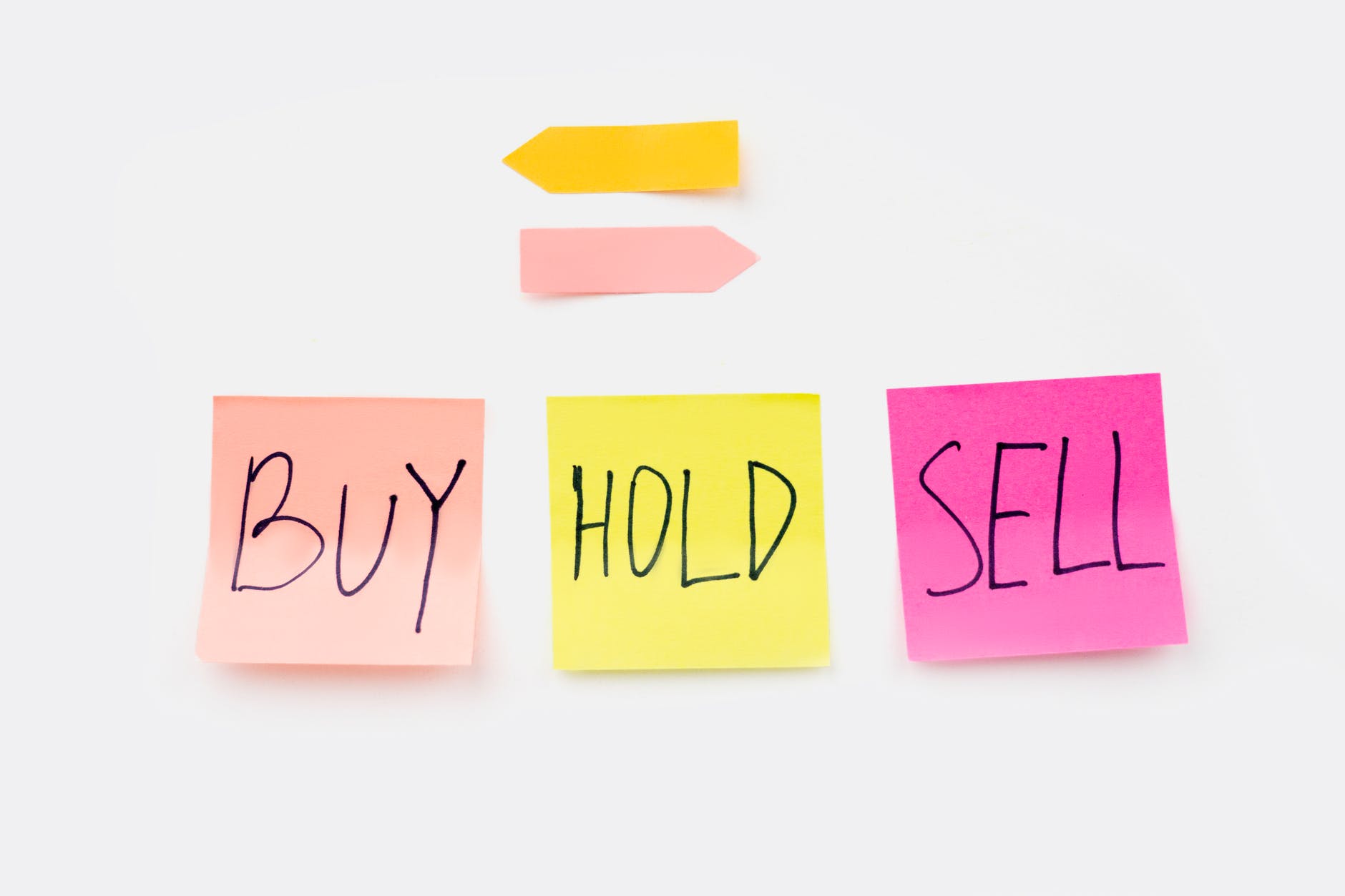Choosing the right brokerage account when you’re ready to invest your money is key to achieving your financial goals and building a solid foundation.
When you’re looking for an online broker, there are many options available.
It’s great because you can choose a broker who best suits your needs. There is a downside.
It can be overwhelming for a novice or neophyte investor to decide where to begin and what platform is right for them.
But don’t worry! You can make an informed decision by reading on!
Table of Contents
What is a brokerage account?
What is the best brokerage account?
What are the best automated options (robo-advisors), for beginners?
Do brokerage accounts really pay off?
How do I Choose A Brokerage Account?
FAQ on Brokerage Accounts
What is a brokerage account?
You can buy and sell stocks, bonds, index funds, mutual funds or ETFs through a brokerage account. This account can also hold cash so that you always have some money to invest when you’re ready.
Types of brokerage account
You will have the option of choosing between an individual or joint brokerage account when opening a traditional account.
Individual brokerage account (IBC): This is a standard account used by most people. You open the account under one name, and you are the only owner of the account.
Joint brokerage account. If you choose to open a joint account, you are opening a brokerage account that is shared by two or more people.
You can open a joint account with your spouse or other family members. It is also possible to do so with a child, business partners, or even your child. Learn more about this account type, including its pros and cons.
What can a brokerage account be used for?
A brokerage account can be a good way to accumulate wealth, invest for your retirement, or save for a future large purchase.
You have more options to invest your money when you open a trading account than if you were to use a bank’s savings account.
You can purchase and sell stocks, ETFs and mutual funds.
Access to investment tools, research and experts who can help.
You can achieve greater financial goals by investing your money in the stock market than you could by letting it sit in a traditional bank.
When should you open an investment account?
Open a brokerage account if you plan to save for five years or longer, but not necessarily retirement. This account is a good companion to an emergency fund and can improve your financial health.
Since a traditional brokerage is a tax-deferred account, you should first build your emergency fund and then max out your retirement account. You will be financially prepared, and you can invest for your retirement.
Open a traditional brokerage to maximize your investment potential, especially if you have extra money or are earning more. This is how you can become wealthy and enjoy a better life.
What is the best brokerage account?
Many brokerage accounts offer similar services, features and prices for both trades and accounts.
During the past few years, some disruptive players have shaken up the financial market and forced some original players to catch up. Investors, this is good news. This can, as I mentioned earlier, make it hard to select the right broker.
Here is a list with the best brokerages:
Charles Schwab
Vanguard
Fidelity
Webull
Robinhood
Charles Schwab
Charles Schwab is a top online broker. Charles Schwab offers a variety of index funds and ETFs at low costs. This year, they dropped their commission fee in order to compete with new fintech firms (like Robinhood).
The platform is easy to use. It takes time to become familiar with the platform. After you become familiar with Schwab, setting up an index investment strategy is easy.
Fee Snapshot
ETFs and index funds have the lowest fees at 0.02%
$0 commission per trade
Notable Funds
SWTSX – Schwab Total Stock Market Index Fund (0.03% expense ratio)
SWISX Schwab International Index Fund (0.06 % expense ratio)
SWAGX – Schwab U.S. Aggregate Bond Index Fund (0.04 % expense ratio)
Vanguard
Vanguard, a pioneer of index funds and a favorite of mine, is one I’m proud to recommend. John C. Bogle developed it in the 1970s. He is credited as the father index funds.
Vanguard was the first and is arguably the best way to purchase index funds. John Bogle founded it, the man himself who invented index funds.
They may not have the lowest fees, or even the most slick online platform, but they’ve been a trusted broker to index investors for a long time. Plus, they still have pretty low costs.
Fee Snapshot
ETFs and index funds have the lowest fees at 0.04%
No commission on trades (with Vanguard funds).
Notable Funds
Vanguard Total Stock Market Index Fund (0.04 % expense ratio).
VTIAX Vanguard Total International Stock Index Fund (0.1% expense ratio).
VBTLX – Vanguard Total Bond Market Fund (0.5% expense ratio).
Fidelity
Fidelity offers a few fewer index funds than Vanguard or Schwab. However, this is not always a big deal. This is especially true if you’re building a three-fund portfolio.
There are funds that offer 0% expense ratios. That’s right, 0%!
Neither Vanguard nor Schwab offer this at the moment. This could change in the future as online brokers become more popular.
Fee Snapshot
ETFs and index funds have the lowest fees at 0.00%
No commissions on trades (with Fidelity Funds)
Notable Funds
FNILX – Fidelity ZERO large cap index fund (0.00% expense ratio).
FZROX Fidelity Zero Total Market Index Fund (0 % expense ratio).
FZILX Fidelity Zero International Index Fund (0.00% expense Ratio)
Webull
Webull is one of the newest brokerages in the market. It has already established itself as a major player in the investment world. It was founded in 2017 and has some excellent features for investors.
Webull is a platform that was designed to be mobile-first. They offer free trading for stocks, ETFs and options. You can trade cryptocurrency and open an IRA or individual brokerage account. One downside is that at the moment they don’t offer index funds, but their ETF selection is excellent.
They also have a robust platform for trading research to help you make smarter investment decisions.
Webull
Robinhood
Robinhood has a slight advantage over Schwab due to its simple and intuitive platform. This, coupled with free trading is hard to beat.
It does have a basic platform. It’s easy to use, which makes it a good app, but you will need to go outside the Robinhood App to conduct more in-depth research.
It is also important to remember that simplicity is not always the best when it comes time to invest. Robinhood makes trading stocks very simple, almost like playing a game. It isn’t! It is important to do thorough research before making any trades.
Fee Snapshot
$0 commission per trade
What are the best automated options (robo-advisors), for beginners?
There are other brokerage accounts that you may want to look at as a novice if you’re just starting out with investing, or if you want more automated options.
Here is a list with the best brokerages for beginners.
M1 Finance
Betterment
Stash
Ally Invest
Blooom
M1 Finance
Many people want to invest, but don’t have the time or interest to constantly learn about investing and tinker with their portfolios. M1 Finance makes investing simple with its automated portfolio management and account options.
There are over 80 customizable profiles you can invest in. You can also own fractional shares of stocks and ETFs and create investing and balance schedules so that you don’t need to login constantly. You can choose from a variety of account types, including an individual brokerage, joint brokerage, an IRA or a Trust.
M1 Finance does not charge commissions or marksups for any trades. There are also no fees associated with deposits or withdrawals from your bank. There are other fees that you should be aware of for certain actions.
M1 Finance – Learn More
Betterment
Robo-advisors are generally easier to use. Betterment offers an easy-to-use interface. Once you’ve answered their questions upfront, they will manage your investments. You can’t make it any easier!
The Betterment service does have a fee – a 0.25 percent management fee. This fee can add a lot of money to your investment, so make sure it’s worth the cost.
Fee Snapshot
Management fee of 0.25%
0.03%-0.25% is the range of ETF fees
Notable Funds
Dow Jones U.S. Broad Stock Market (0.03 expense ratio).
VOE – CRSP US mid cap value (0.07% expense rate)
SCHF – FTSE Developed ex US (0.06% expense Ratio)
Stash
Stash Invest or simply Stash has rapidly risen to the top of the list as the best platform for investing, both for beginners and more experienced investors. With as little as $1, you can buy fractional shares in funds and stocks. You can also get portfolio advice and help from the company to balance your portfolio.
Stash offers investors three different account plans that range from $1 to $9 a month, depending on your choice. Each plan includes features that go beyond investments to give you more control over your money.
You can invest in a traditional IRA or Roth IRA.
Stash: Learn More
Ally Invest
Many people in the personal finance sector use Ally Bank to meet their online banking requirements. You might not be aware that they offer investment services and options as well.
Ally Invest provides Managed Portfolios and Self-Directed Trading, both of which are different.
Self-Directed trading: Stocks, bonds, ETFs and mutual funds. Commission-free stocks.
Managed Portfolios – Robo-advisor you can begin with as little as $100. No annual fees or rebalancing charges. 30% of your portfolio will be set aside for an interest-earning buffer. Portfolio monitoring and automatic rebalancing, ETFs and a variety of portfolio options to choose from.
Ally Invest: Learn more
Blooom
Blooom, a robo-advisor that focuses primarily on 401(k), connects to your current 401(k). They can offer you optimization tips or manage your account.
Blooom provides two levels of service.
Blooom will review your 401(k), and make recommendations to help you optimize your investments.
Blooom provides ongoing 401 (k) management so that you can relax and let them handle the details.
Fee Snapshot
Get a free 401(k).
For ongoing 401(k), there is a flat rate of $10/month.
What the Blooom free analysis provides:
Diversification is recommended
Check your fee fund to ensure you’re in the lowest possible amount
Watch out for obvious things, such as investing in company stocks
Retirement Tracking Snapshot
Do brokerage accounts really pay off?
A brokerage account may be the best option for your personal finances. You can save money in these accounts and use it to invest towards a goal.
What makes a brokerage account worth it?
No restrictions or penalties on withdrawals like IRAs or 401ks
You can withdraw money at any time without fees.
No account restrictions apply. You can invest however much you like.
You can pay your taxes more flexiblely if you decide to sell.
Tax deductions for losses on investments
You will have to declare any capital gains you make with a brokerage as taxable income. Funds and ETFs, however, are tax-efficient investments that you might find interesting.
My money is safe in my brokerage account.
SIPC (Securities Investor Protection Corporation) insures and protects your money when you invest through a brokerage. Customers are protected up to $5000 and $250,000 cash. This means that if you are dealing with a legitimate broker, there will be protections to ensure that your money and assets are protected in the event of bankruptcy.
How do I Choose A Brokerage Account?
It can be difficult to decide which brokerage account you should choose, as there are many choices available today. Even though many of the brokerage accounts above offer similar features, you may still find some differences that are important to you.
Before opening a brokerage account, here are some tips you should consider.
Understanding the Fees
Although fees have decreased over the years due to Fintech disruptions, some brokerage accounts offer different fee amounts. You want to pay the least amount of fees. Don’t chase minor fractions of a percent, especially when one broker can provide all the services you require.
Check for fees such as account fees or fund fees. Also, check if you have to pay fees when buying or trading stocks. Compare these numbers with all brokers that you are considering.
What type of investment do they offer
What type of investment you require will be important when you are considering opening and investing in an account with a brokerage. You’ll need to check with the brokerage firm you select if they offer the investments you desire.
Are they offering ETFs or index funds? Do they have bonds and stocks? Do they offer a limited selection? Are they able to offer a custom portfolio, or are you required to choose your own investments?
Check that the platform you choose allows you to do all you need
It is important to have an investment platform that lets you manage your investments in one location. You may be happy with a standard brokerage account but it is nice to also have options such as retirement accounts or 529 plans that cover future education costs.
Brokerage Accounts FAQ
Can you use your brokerage account as a check account?
The brokerage account is similar to a savings or checking account, in that it allows you to make withdrawals or contributions as often as you like. A brokerage account offers more investment options than a traditional bank and isn’t FDIC-insured.
Do you have to pay tax on your brokerage account?
You have opened a tax-paying account when you open a brokerage account. If you earn money from your investments, or if they pay dividends or interests, then that income will be taxed.
What is the penalty for withdrawing money from a brokerage?
There are no penalties for withdrawals from a traditional brokerage. Any money that you withdraw is taxable. You should be aware that any capital gains you make from selling your assets will be subject to tax.
This article was originally published on Your Mbestoney Geek. It has been republished by permission.









